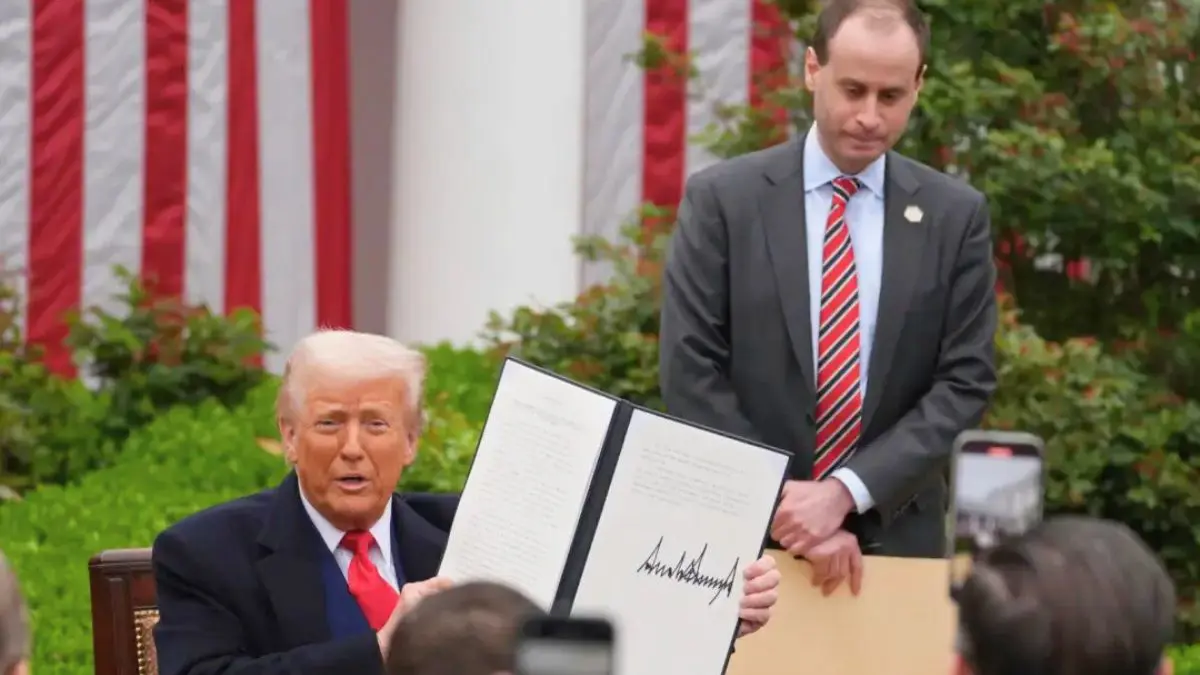Trump tariffs and economic uncertainty drive CEO and activist settlements
By Cygnus | 04 Apr 2025

Shares of Yeti Holdings saw sharp declines in December and again in March when former President Donald Trump threatened tariffs on China, where the company operates some of its largest factories. But behind the headlines, Yeti faced another challenge.
Hedge fund Engaged Capital was pressuring the Austin, Texas-based company—known for its $300 coolers and $40 travel mugs—to return more cash to shareholders, expand into new markets, and increase transparency with investors. According to sources familiar with the discussions, Engaged Capital believed these changes could help Yeti's stock price triple within three years.
Amid market volatility and concerns over consumer demand, Yeti and Engaged Capital reached a settlement, avoiding a potentially contentious battle. The agreement boosted Yeti’s stock nearly 6% on the day of the announcement. Yeti did not respond to requests for comment.
The Yeti agreement reflects a broader trend where corporations and activist investors are choosing compromise over conflict. With fears of a tariff war, mass layoffs in U.S. government agencies, and a looming recession weighing on the business outlook, more companies are seeking resolutions rather than engaging in drawn-out disputes.
In the first quarter alone, 29 global companies reached settlements, a 32% increase from the previous year, according to Barclays.
‘If market uncertainty persists, we will likely see even more settlements, as fewer fights will go to a vote,’ said Duncan Herrington, managing partner at consulting firm Jasper Street Partners.
Other companies that have recently settled with activist investors include cybersecurity firm Rapid7, which agreed to appoint three directors backed by Jana Partners. Consumer health company Kenvue, known for brands like Band-Aid and Tylenol, also reached an agreement with Starboard Value.
Corporate leaders, still recovering from the challenges of the Covid-19 pandemic, are prioritizing stability. Many executives have told bankers and lawyers they want to minimize distractions like boardroom battles to focus on running their businesses.
‘Many companies want to remove risks and concentrate on operations,’ said Lawrence Elbaum, co-head of Vinson & Elkins’ shareholder activism practice. ‘At the same time, activist investors are facing financial losses, so they also prefer quick settlements.’
Despite the trend toward settlements, major corporate fights are still unfolding. High-stakes battles continue at U.S. Steel, Phillips 66, and Autodesk, proving that not all disputes are being resolved quietly. However, both corporate leaders and activist investors are showing a greater willingness to compromise.
‘People are more open to negotiations now,’ said Herrington of Jasper Street Partners.
Activist investors, who previously fought for board seats for themselves or their founders, are now more flexible in their approach. Meanwhile, corporate boards are increasingly open to considering nominees proposed by activist investors—especially when they bring relevant industry expertise.
For example, Engaged Capital pushed for Yeti to diversify its product line and recommended Arne Arens, an expert in the clothing industry, for a board position. Today, Arens serves as a Yeti director.
Activists weigh costs before fighting
With many activist investors facing losses this year, they are being more cautious about pursuing costly and uncertain battles.
‘Activists have to do the math and assess their chances of winning a fight,’ said Lyndon Park, head of ICR Shareholder Advisory. ‘If both sides are open to an agreement, then a settlement isn’t a defeat—it’s a strategic decision.’
As economic uncertainty lingers, corporate executives and activist investors are increasingly choosing collaboration over conflict, reshaping the landscape of shareholder activism in the process.
Frequently Asked Questions (FAQs)
1. Why did Yeti Holdings' shares drop in December and March?
Yeti's stock declined due to concerns over tariffs imposed by former President Donald Trump on Chinese imports. Since Yeti has major manufacturing operations in China, investors feared the tariffs would impact costs and profitability.
2. What role did Engaged Capital play in Yeti's decision-making?
Engaged Capital, an activist hedge fund, pushed for Yeti to return more cash to shareholders, expand into new markets, and improve transparency. Their proposed changes aimed to boost Yeti’s stock performance over the next three years.
3. Why are companies settling with activist investors more frequently?
Market uncertainty, economic downturn fears, and concerns over tariffs are leading more companies to seek settlements rather than prolonged disputes. Many executives prefer to avoid distractions and focus on business operations.
4. How common are activist settlements in the current market?
According to Barclays, 29 global companies reached settlements in the first quarter of the year, a 32% increase from the previous year. This trend suggests that economic instability is driving more negotiations.
5. What are some recent examples of activist settlements?
- Rapid7 settled with Jana Partners by adding three directors.
- Kenvue, the owner of Band-Aid and Tylenol, reached an agreement with Starboard Value.
6. Are all activist investor battles ending in settlements?
No, some high-profile battles are still ongoing. Companies like U.S. Steel, Phillips 66, and Autodesk are facing continued activist pressure without reaching settlements yet.
7. How are corporate boards responding to activist pressure?
Boards are becoming more open to considering activist-nominated directors, especially those with relevant industry expertise. Activists are also shifting strategies, focusing more on business improvements rather than just gaining board seats.
8. Why are activists choosing settlements over prolonged fights?
Many activist investors have suffered financial losses recently, making them more cautious about engaging in expensive and uncertain proxy battles. Settlements allow them to achieve some of their goals without the risk of a full-scale fight.
9. What does this trend mean for the future of corporate governance?
The increasing number of settlements suggests a shift toward collaboration between corporate leaders and activist investors. Companies are recognizing the value of compromise, while activists are prioritizing strategic wins over confrontational tactics.


















